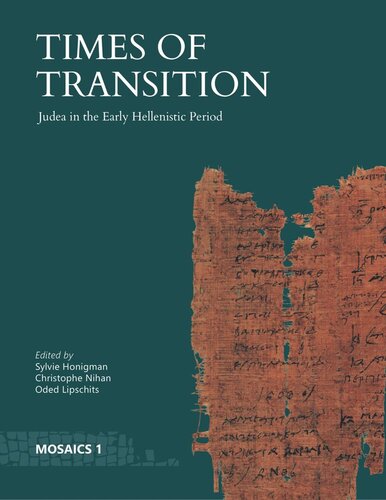

Most ebook files are in PDF format, so you can easily read them using various software such as Foxit Reader or directly on the Google Chrome browser.
Some ebook files are released by publishers in other formats such as .awz, .mobi, .epub, .fb2, etc. You may need to install specific software to read these formats on mobile/PC, such as Calibre.
Please read the tutorial at this link: https://ebookbell.com/faq
We offer FREE conversion to the popular formats you request; however, this may take some time. Therefore, right after payment, please email us, and we will try to provide the service as quickly as possible.
For some exceptional file formats or broken links (if any), please refrain from opening any disputes. Instead, email us first, and we will try to assist within a maximum of 6 hours.
EbookBell Team

4.4
82 reviewsThis multidisciplinary study takes a fresh look at Judean history and biblical literature in the late fourth and third centuries BCE. In a major reappraisal of this era, the contributions to this volume depict it as one in which critical changes took place.
Until recently, the period from Alexander’s conquest in 332 BCE to the early years of Seleucid domination following Antiochus III’s conquest in 198 BCE was reputed to be poorly documented in material evidence and textual production, buttressing the view that the era from late Persian to Hasmonean times was one of seamless continuity. Biblical scholars believed that no literary activity belonged to the Hellenistic age, and archaeologists were unable to refine their understanding because of a lack of secure chronological markers. However, recent studies are revealing this period as one of major social changes and intense literary activity. Historians have shed new light on the nature of the Hellenistic empires and the relationship between the central power and local entities in ancient imperial settings, and the redating of several biblical texts to the third century BCE challenges the traditional periodization of Judean history.
Bringing together Hellenistic history, the archaeology of Judea, and biblical studies, this volume appraises the early Hellenistic period anew as a time of great transition and change and situates Judea within its broader regional and transregional imperial contexts.